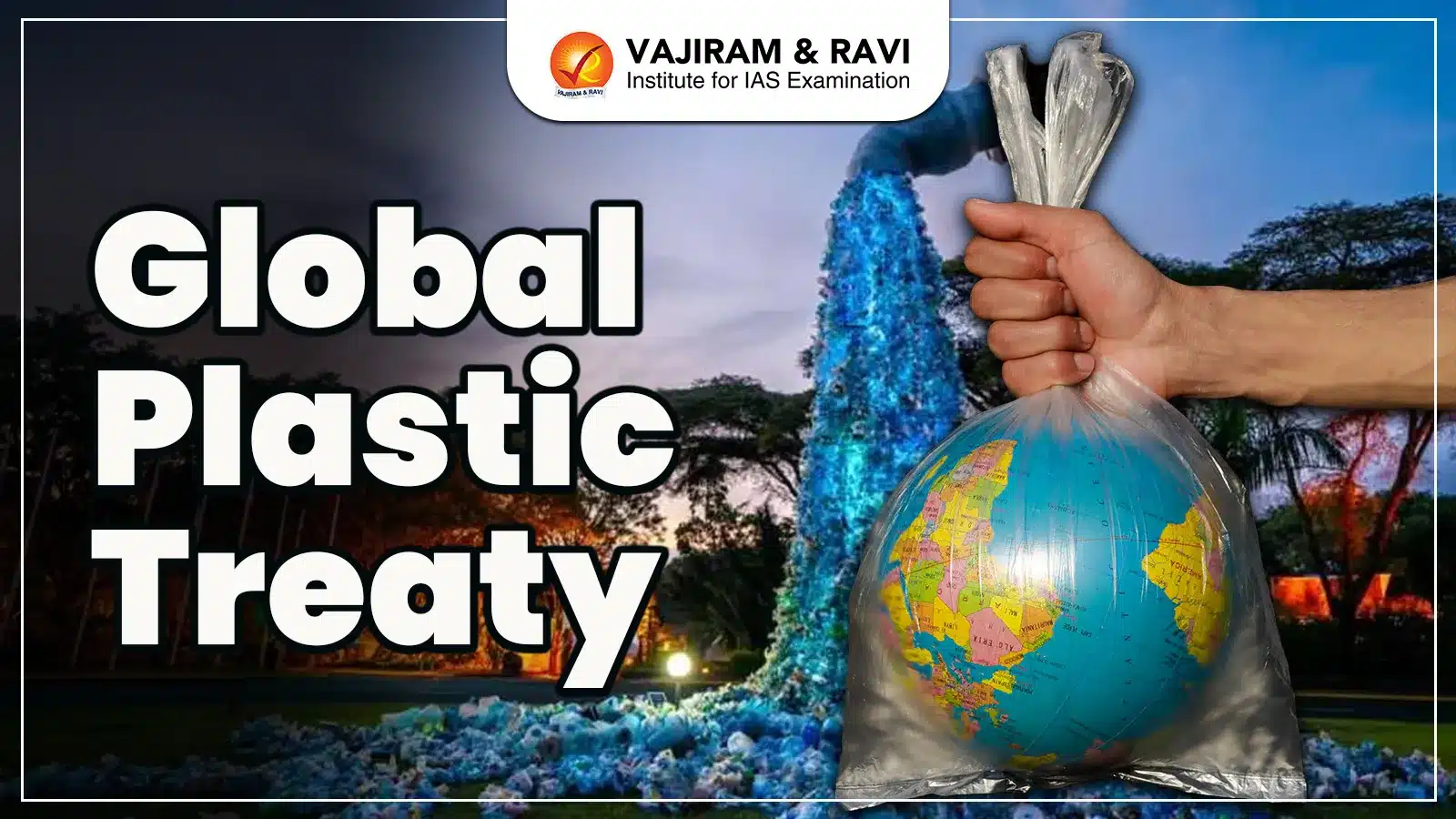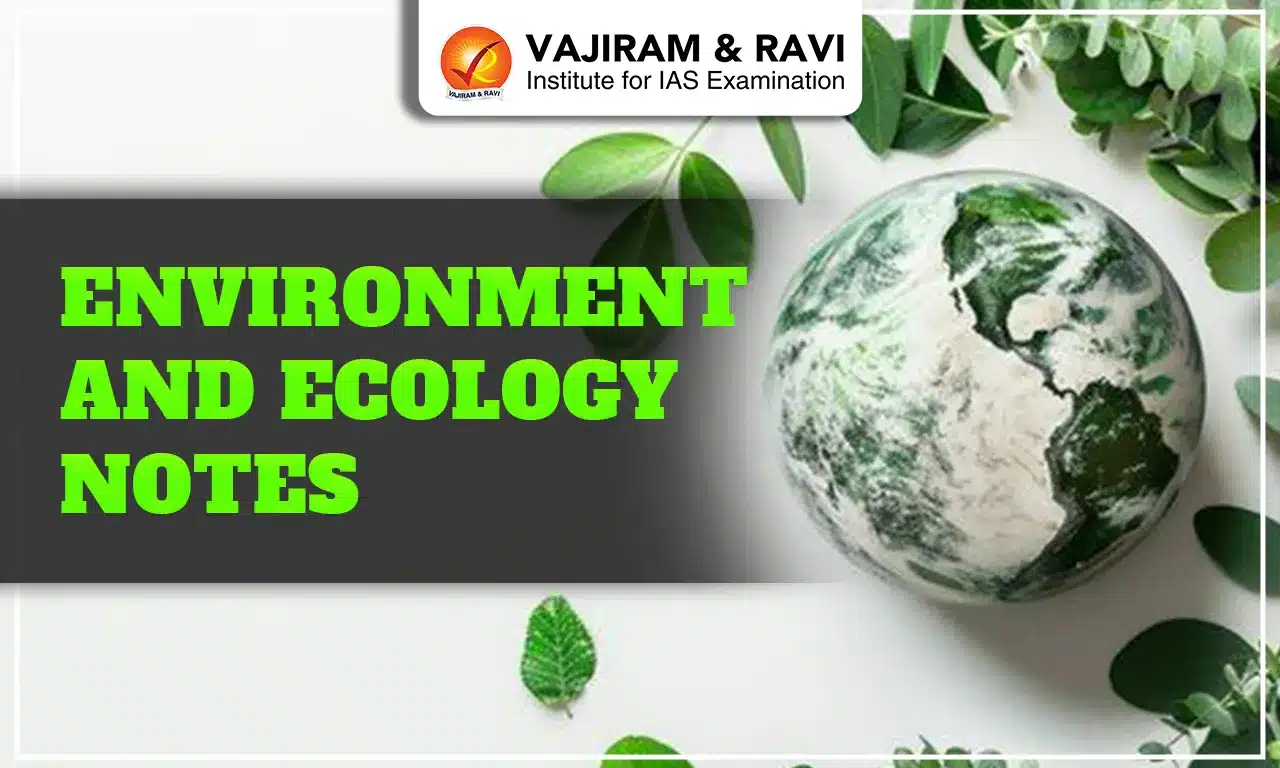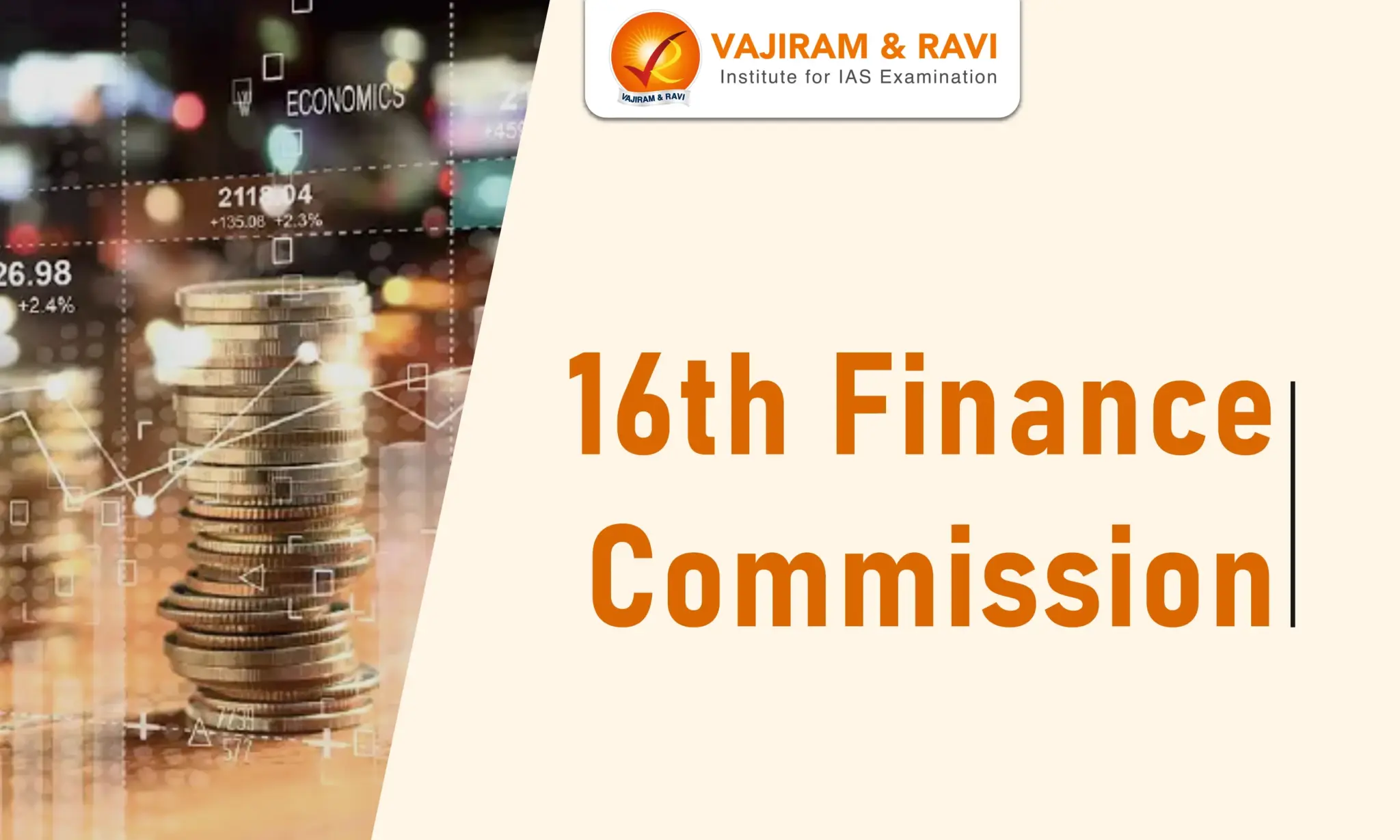Global Plastic Treaty, initiated under the United Nations Environment Assembly (UNEA) in 2022, aims to address plastic pollution through lifecycle management, recycling, and reducing production. A recent round of negotiations in Busan, South Korea, ended without a final agreement, primarily due to disagreements over production caps and the elimination of specific plastic chemicals and products.
Despite the stalemate, the draft text proposed measures such as banning open dumping and burning to promote sustainable waste management. These proposals will serve as a foundation for further discussions, with negotiations set to continue next year.
What is the Global Plastic Treaty?
The Global Plastic Treaty is an international initiative launched under the United Nations Environment Assembly (UNEA) in 2022 to address the escalating issue of plastic pollution. It aims to establish legally binding measures for managing the entire lifecycle of plastics, including their production, usage, recycling, and disposal. The treaty focuses on:
- Reducing plastic production to curb the supply of new plastics.
- Encouraging recycling and reuse to minimise waste.
- Managing hazardous chemicals associated with plastics.
- Eliminating harmful practices such as open dumping and burning of plastic waste.
Negotiations involve member states, environmental organisations, and industry stakeholders working to set global standards and policies. Once finalized, the treaty is expected to play a pivotal role in transitioning toward sustainable plastic usage and addressing environmental challenges posed by plastic pollution.
Need for Global Plastic Treaty
The escalating plastic pollution crisis demands a global treaty. Annual plastic production surged from 234 million tonnes in 2000 to 460 million tonnes in 2019 and may reach 700 million tonnes by 2040. With only 10% of waste recycled, the rest continues to damage ecosystems, human health, and the climate. The treaty aims to set binding targets for reducing plastic production, eliminating harmful chemicals, and promoting sustainable waste management practices.
- Environmental Impact: Plastic pollution is devastating marine and terrestrial ecosystems. Millions of tons of plastic waste end up in oceans every year, harming wildlife and disrupting natural habitats.
- Plastics take 20–500 years to decompose, yet less than 10% of waste was recycled by 2023 (The Lancet).
- Human Health: Microplastics have been found in drinking water, food, and even the air we breathe. These tiny plastic particles can carry harmful chemicals and pose serious health risks to humans.
- Economic Costs: The economic impact of plastic pollution is significant. It affects tourism, fisheries, and clean-up efforts, costing billions of dollars annually.
- Sustainable Development: Addressing plastic pollution is crucial for achieving sustainable development goals. It involves promoting sustainable production and consumption patterns, reducing waste, and fostering a circular economy.
- Global Cooperation: Plastic pollution is a global problem that requires coordinated international action. A global treaty would provide a framework for countries to work together, share best practices, and implement effective solutions.
- Plastics accounted for 3.6% of global greenhouse gas emissions in 2020, with emissions projected to rise 20% by 2050 (Lawrence Berkeley National Laboratory).
By addressing these issues collectively, the treaty seeks to mitigate the environmental, health, and economic impacts of plastic pollution and pave the way for a more sustainable future.
Highlights of Negotiations on the Global Plastic Treaty
The recent negotiations on the Global Plastic Treaty in Busan, South Korea, ended without a final agreement. The primary goal was to create a legally binding treaty to address the global plastic pollution crisis, covering the entire lifecycle of plastic from production to disposal.
- However, the talks stalled over key issues, particularly the inclusion of production limits and chemical regulations in the treaty.
- Countries like Saudi Arabia, Kuwait, and India opposed these provisions, arguing they were too disruptive to their economic interests.
- Despite significant support from over 100 countries for measures to limit plastic production and regulate harmful chemicals, the negotiations failed to reach a consensus.
The discussions will resume next year, with the draft text from the recent negotiations serving as the basis for future talks.
India’s Position on the Treaty
India has taken a firm stance against regulating the production of primary plastic polymers in the Global Plastic Treaty negotiations. The country argues that such regulations could hinder its development rights and economic interests. India emphasizes that the treaty should focus on addressing plastic pollution rather than imposing production limits.
- Financial and Technical Support: Advocated for financial aid, technology transfer, and a dedicated multilateral fund for developing countries.
- Concerns Over Trade Implications: Highlighted potential unintended trade impacts of certain treaty provisions.
- Opposition to Timelines: Opposed immediate timelines for phasing out plastics, citing feasibility concerns.
- Consideration of National Differences: Emphasized the need to account for diverse capacities and circumstances of nations in treaty provisions.
- Global Cap on Polymer Production: Sharp divisions emerged over introducing a production cap to control the amount of plastic produced globally.
- India and China resisted the production caps, citing concerns about their potential impact on economic growth and the versatility of polymers used in thousands of products.
Efforts to Combat Plastic Pollution
India has banned 19 single-use plastic items since 2022 and introduced Extended Producer Responsibility (EPR) to promote recycling. Stricter packaging standards, biodegradable plastics certification, and penalties are enforced through updated Plastic Waste Management Rules. The Mandatory Jute Packaging Act (2010) reduces reliance on artificial packaging.
Globally, UNEP-led negotiations focus on recycling and production targets, while the EU Directive on Single-Use Plastics bans high-littering items and improves recycling. The Global Tourism Plastics Initiative promotes sustainable tourism practices, and public-private investments drive innovation in waste management technologies.
Global Plastic Treaty Way Forward
The fight against plastic pollution requires a shift to a circular economy, equitable burden-sharing, and sustainable practices. Key to long-term sustainability are robust financial mechanisms, public participation, and a fair transition for affected industries. The following measures are essential to addressing the plastic crisis:
- Continued Negotiations: The recent talks in Busan ended without a final agreement, but the draft text will serve as the basis for future discussions. The next round of negotiations is scheduled for 2025.
- Addressing Key Issues: The primary sticking points include production limits and chemical regulations. Countries need to find common ground on these issues to create a comprehensive and effective treaty.
- Inclusion of All Stakeholders: Ensuring that all countries, especially those with significant plastic production and consumption, are on board is crucial. This includes addressing the concerns of countries like Saudi Arabia, Iran, and India, which have opposed certain provisions.
- Financial and Technical Assistance: Developing countries need support to comply with the treaty's provisions. This includes financial aid, technology transfer, and capacity-building initiatives.
- Public and Civil Society Engagement: Continued pressure from civil society organizations and the public is essential to keep the momentum going and ensure that the treaty remains ambitious and effective.
- Implementation and Compliance: Once the treaty is finalized, robust mechanisms for implementation, monitoring, and compliance will be necessary to ensure its success
Global Plastic Treaty UPSC PYQs
Q1 In India, ‘extend producer responsibility’ was introduced as an important feature in which of the following? (UPSC Prelims 2019)
(a) The Bio-medical Waste (Management and Handling) Rules, 1998
(b) The Recycled Plastic (Manufacturing and Usage) Rules, 1999
(c) The e-Waste (Management and Handling) Rules, 2011
(d) The Food Safety and Standard Regulations, 2011
Ans: (c)
Q2. Why is there a great concern about the ‘microbeads’ that are released into the environment? (UPSC Prelims 2019)
(a) They are considered harmful to marine ecosystems.
(b) They are considered to cause skin cancer in children.
(c) They are small enough to be absorbed by crop plants in irrigated fields.
(d) They are often found to be used as food adulterants.
Ans: (a)
Last updated on February, 2026
→ UPSC Notification 2026 is now out on the official website at upsconline.nic.in.
→ UPSC IFoS Notification 2026 is now out on the official website at upsconline.nic.in.
→ UPSC Calendar 2026 has been released.
→ Check out the latest UPSC Syllabus 2026 here.
→ Join Vajiram & Ravi’s Interview Guidance Programme for expert help to crack your final UPSC stage.
→ UPSC Mains Result 2025 is now out.
→ UPSC Prelims 2026 will be conducted on 24th May, 2026 & UPSC Mains 2026 will be conducted on 21st August 2026.
→ The UPSC Selection Process is of 3 stages-Prelims, Mains and Interview.
→ Prepare effectively with Vajiram & Ravi’s UPSC Prelims Test Series 2026 featuring full-length mock tests, detailed solutions, and performance analysis.
→ Enroll in Vajiram & Ravi’s UPSC Mains Test Series 2026 for structured answer writing practice, expert evaluation, and exam-oriented feedback.
→ Join Vajiram & Ravi’s Best UPSC Mentorship Program for personalized guidance, strategy planning, and one-to-one support from experienced mentors.
→ UPSC Result 2024 is released with latest UPSC Marksheet 2024. Check Now!
→ UPSC Toppers List 2024 is released now. Shakti Dubey is UPSC AIR 1 2024 Topper.
→ Also check Best UPSC Coaching in India
Global Plastic Treaty FAQs
Q1. What is the Global Plastic Treaty 2024?+
Q2. Is India part of the Global Plastic Treaty?+
Q3. What is the current global plastic treaty?+
Q4. Which country is the first in Asia to launch a plastics pact?+
Q5. Which is the most plastic-free country in the world?+
Tags: global plastic treaty quest UPSC Environment and Ecology Notes


















